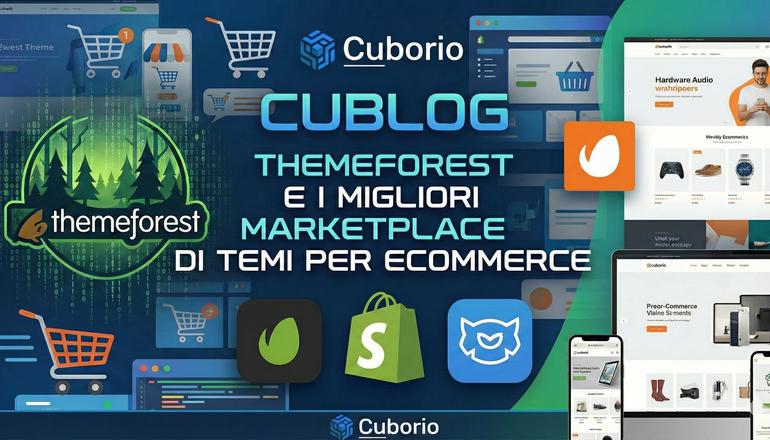
%16 %b
Integrate digital payments and cryptocurrencies into your e-commerce
Discover how to integrate digital payments, cryptocurrencies, and NFTs into your eCommerce business. Increase sales, reduce costs, and stand out from the competition with Cuborio.
Read more
%09 %b
How Satispay works: a guide to the Italian payment app
Since its inception, Satispay has emerged not as a simple online payment gateway, but as a true Italian-made revolution.
Read more
%22 %b
ThemeForest and the best marketplaces for e-commerce themes
ThemeForest, part of the Envato Market ecosystem, is one of the most reliable platforms for purchasing ready-to-use templates and themes for WordPress, Shopify, Magento, and other CMSs.
Read more
%15 %b
Best-selling products on Amazon: strategies for buyers and businesses
Identifying trending products on Amazon is the first step for anyone who wants to shop smart or launch a successful business.
Read more
%04 %b
How Artificial Intelligence is transforming online sales
The advent of Artificial Intelligence in e-commerce represents one of the most significant digital revolutions of recent years.
Read more



